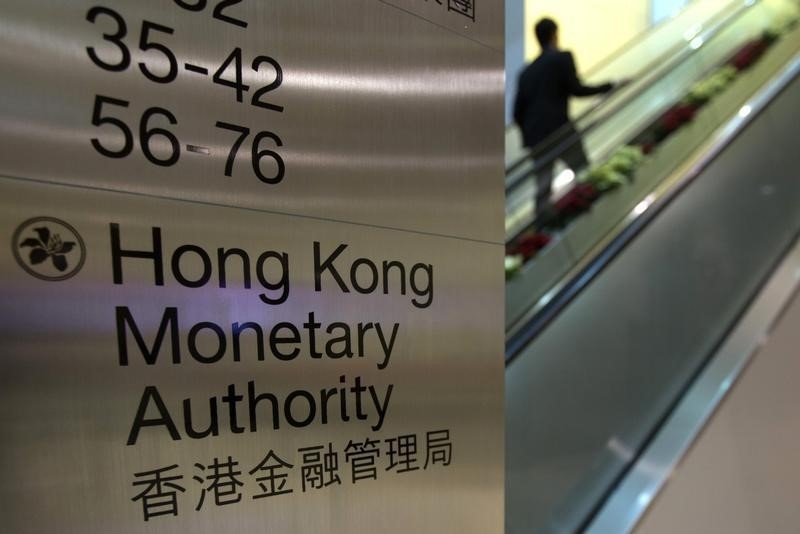(Bloomberg) -- Hong Kong’s central bank is expected to sell extra debt to soak up liquidity as funds return to the financial system following Ant Group Co.’s initial public offering.
Heated demand for the share sale had kept the local currency at the strong end of its trading band with the greenback in recent weeks. That spurred the Hong Kong Monetary Authority to inject nearly $24.6 billion into the financial system last month through buying U.S. dollars, swelling the liquidity pool.
The sale of Exchange Fund Bills is one method the HKMA can use to influence the amount of liquidity in the system. Outstanding Exchange Fund Bills stood at HK$1.07 trillion ($138 billion) as of end-September.
While excess liquidity is not a problem in most parts of the world right now, Hong Kong’s open capital borders and pegged currency make it vulnerable to fund flows in and out of the city. The retail portion of Ant’s deal lured HK$1.3 trillion in orders as of Friday, or more than 390 times the initial supply, according to the South China Morning Post, which cited people familiar with the matter.
“Liquidity conditions that are excessively flush can prompt investors to take on too many risks when buying properties and stocks, a scenario that will make the authorities worried,” said Carie Li, an economist at OCBC Wing Hang Bank. “Therefore, they may need to sell EFBs to withdraw some liquidity after the Ant IPO. And demand for the bills will be strong, given banks will want to make use of the abundant liquidity they own.”
The HKMA already planned to sell about HK$829 billion of the bills this quarter, a lot of which would be used to roll over maturing debt, according to Bloomberg calculations based on its tentative issuance schedule released in August. On top of the quarterly releases, the de-facto central bank occasionally publishes statements on additional debt sale or reduction of planned issuance to manage liquidity. The HKMA didn’t immediately reply to an email seeking comments.
“Hong Kong faces high financial risks, as some tech companies are doing very well when the economy is in recession,” said Tommy Ong, managing director for treasury and markets at DBS Hong Kong Ltd. “So the HKMA will be pressured to withdraw liquidity, as it doesn’t want to see the equities bubble enlarge any further. The HKMA will likely sell EFBs in a gradual manner, with the first batch of issuance being around HK$400 billion.”
The HKMA may sell Exchange Fund Bills in small sizes, so interbank borrowing costs or the Hong Kong dollar won’t likely see outsized volatility, according to Chun Him Cheung, a strategist at Bank of America Merrill Lynch (NYSE:BAC). The one-month interbank lending rate, known as Hibor, has fallen to about 0.32% from 2.67% at the end of 2019.
Pressure on the Hong Kong dollar to rise is ebbing now that Ant’s IPO is allocated. It was last 0.02% weaker at 7.7513 per greenback after being at or around the 7.75 limit since mid-September.
The fact that the city’s currency is away from the strong end means the window is open for the officials to absorb some of the liquidity, said OCBC’s Li.
©2020 Bloomberg L.P.
